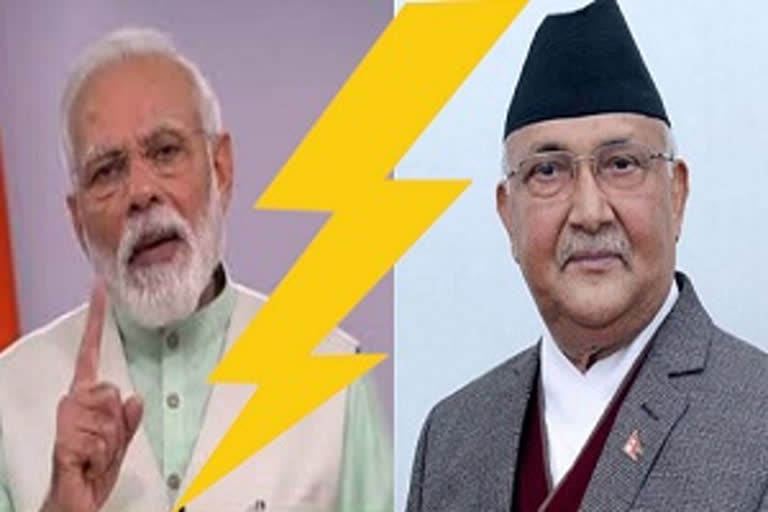New Delhi/Kathmandu: Nepal's diplomatic offensives against India over issues ranging from border disputes to the coronavirus pandemic indicate that Kathmandu-New Delhi relations are on a downward spiral.
In his first speech in Nepal's Parliament on Tuesday since the global disruption due to the coronavirus pandemic, Prime Minister KP Sharma Oli asserted that his government would get back "at any cost" the contentious area of Kalapani-Limpiyadhura-Lipulekh from India. He also held India responsible for the spread of the Wuhan-originated coronavirus pandemic in Nepal.
However, sources at the ministry of external affairs in New Delhi on Wednesday trivialised the latter part of Oli's offensive related to the coronavirus saying that his speech was mistranslated by the media.
The exact literal translation of the excerpt of Oli's speech related to the coronavirus, sources said, is "The virus which came from Wuhan is not so tough. The virus came from Italy was also not so tough, from Dubai also was not so tough. But the infection is seen tough in the infected who came from India."
Read:Nepal will reclaim its disputed territories through talks with India: PM Oli
Oli appears to have used it in the context that the infection that came from India is widespread, sources said.
Some media reports in Delhi had said that Oli in his speech said that "Virus from India looks more lethal than Chinese and Italian." He was quoted by media saying, "Those who are coming from India through illegal channels are spreading the virus in the country and some local representatives and party leaders are responsible for bringing in people from India without proper testing. It has become very difficult to contain COVID-19 due to the flow of people from outside. Indian virus looks more lethal than Chinese and Italian now. More are getting infected."
Though New Delhi tried to do damage control over Oli's coronavirus remark, the relationship with Kathmandu has been deteriorating for some time now.
In 2008, the new Maoist-led government expressed its intention to revoke Nepal's 1950 treaty with India, making it evident that it's abandoning its traditional balance between the two Asian neighbours and moving closer towards China.
Read:Political analysts in Nepal favour diplomatic solution to border row with India
Since Oli took over in 2015, Kathmandu-Beijing relation has further strengthened as China made heavy investments in infrastructure development in Nepal. As against India, Nepal has joined China's ambitious Belt and Road Initiative.
